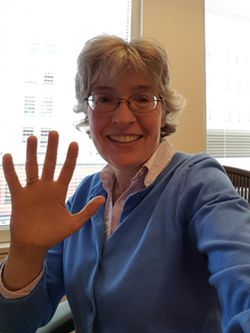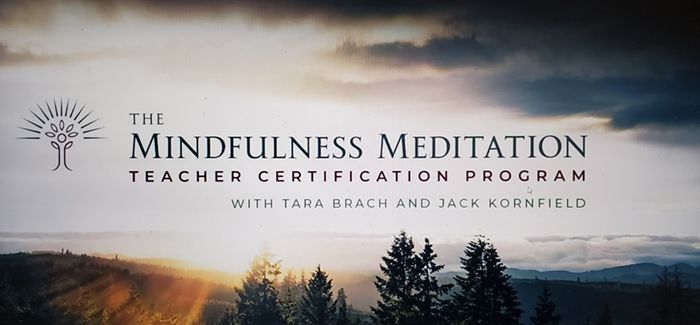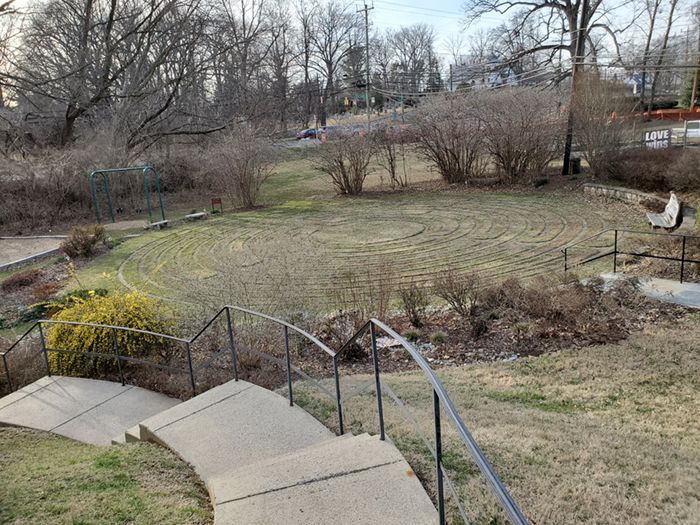Case Study
Dec 19, 2022
Inspiration Project: ‘May You Live Your Life With Ease’
The Inspiration Project is an annual scholarship that enables up to six attorneys and staff to pursue a life-long dream, inspiration, or experience focused on health, wellness, lifelong learning, or community impact. Sponsored by Seyfarth Life, the initiative launched in 2019 and is the legal industry’s first inspiration-focused employee wellness program designed to increase engagement and enrich the firm's culture. We would like to thank Susan Ryan, and all the participants, for agreeing to share their journeys.
Inspiration Project - Mindfulness Meditation
*Excerpts from the Introduction to Mindfulness webinars have been edited for clarity.
“Hey, come on in. Nice to see you. Take a seat. Today, I am mindful, one might say, that you are busy people. So, we'll start with a short reading, and then we'll move into a few minutes of silence. We're just going to sit and exist...”
That’s how Susan Ryan, a librarian in the Washington, DC office, opened her first Introduction to Mindfulness Meditation class at Seyfarth. Teaching the four-session class, which began in late July, was part of her practicum for the Mindfulness Meditation Teacher Certification Program at the University of California, Berkeley.

After reading a passage from The Miracle of Mindfulness by Zen Master Thich Nhat Hanh, who passed away earlier this year, there’s quiet as the class contemplates the words. Then Susan guides students in a series of stretches and breathing exercises before sharing a definition of meditation: It’s the awareness that arises through paying attention, on purpose, in the present moment, without judgment (Jon Kabat Zinn). She hones in on “without judgment,” telling the class:
“For example, right now, I'm teaching a class on mindfulness. I don't have a lot of experience doing this, and my mind is reminding me of that fact. (Thank you, mind.) This is causing me to feel some self-doubt. As a result of that, my heart rate has increased. Okay, so there's a thought, there's an emotion, there's a bodily sensation. Now I’m not going to beat myself up for the thoughts or for my physical reactions to them. That's just what's going on, and I know it’s happened."
Having practiced mindfulness meditation for six years, Susan understands its potential for healing and personal growth. Her dream has been to teach others its benefits, as well, and she’s doing just that with help from a $5,000 Inspiration Project scholarship through Seyfarth Life.
Susan is in her second year of the two-year teacher training program created by renowned meditation teachers Jack Kornfield and Tara Brach. The program, which had 6,000 applicants, started in February 2021 at Berkeley’s Greater Good Science Center. It includes online video and audio learning, individual and group mentorship, cultural sensitivity training, and a practicum in which students lead actual teaching sessions in their local areas.

The Seyfarth class allowed Susan to put her learning and teaching to the test—and Seyfarth employees to reap the benefits.
Life Moves Pretty Fast
It’s about 20 minutes into the Seyfarth class, and Susan tells everyone that mindfulness is also about showing up for your life.
"It can be very easy to live life on autopilot. You have your habits and your routines, and there's nothing wrong with that. If we had to decide every morning exactly how we were going to brush our teeth, it would take up a lot of time every day. It's when our entire day is just one habit after another and we're not really paying attention that we can miss out on our own lives."
Then she dropped a quote from the great philosopher Ferris Bueller.
“Life moves pretty fast. If you don't stop and look around once in a while, you could miss it.”
Another thing mindfulness can help us do is respond to events, rather than merely react to them, Susan tells the class.
“We all find ourselves in stressful situations from time to time; mindfulness is not going to change that. What it will do is allow us to pause to make space between whatever's happening and how we respond. When we're more aware of our own thoughts and emotions, we're less likely to be carried away by them."
The first Seyfarth class focused on what mindfulness is, the second on the sensations in the body, and the third on the amazing power of thoughts and just being. The final class centered on the practice of loving kindness—sending good wishes to others and to yourself:
“In all the world may you be happy, may you be strong and well in mind and body, may you live your life with ease.”

Above: A photo from a 2020 mindfulness retreat that Susan attended in Bethesda, MD.
Easy-peasy—NOT!
Susan is not new to teaching. In addition to being a Seyfarth librarian, she is also an adjunct professor at a local law school, teaching legal research. So, she is comfortable answering questions—or so she thought.
“Relearning how to answer questions has probably been the trickiest part of the program for me. Answering questions in a mindfulness setting is more about leading people to find their own answers. Lawyers and law students aren’t on a life-altering personal journey,” she said.
Still, Susan said she was able to help her peer group be less nervous about teaching. And teaching mindfulness, as well as the practice in general, has helped her stop being so hard on herself.
The first round of mindfulness training she taught as part of the practicum is a case in point. Just as she was about to begin, her internet connection “decided for the first time, it’s not going to show up,” Susan said.
“On a stress scale of 1 to 10, I was at 11. I was literally ready to call it and say, ‘Come back next week.’ But one of my students was a neighbor who lives three doors down. She texted me to come to her house and do the class, so I grabbed my notes and ran down the street to her house,” she said. “It was nuts. There was a time in my life when I would just have completely freaked out. I did freak out some, but the physical recovery came faster."
“A Stressed-out Mess”
Susan has taken mindfulness meditation classes for years because, “I was a stressed-out mess.” Before Seyfarth, Susan worked at Georgetown University and said it was always pandemonium from mid-August through October.
“I was always waiting for winter for good stuff to start happening. But when all you ever do is wait for the future to be happy, then you're not really happy,” Susan said. She credits Seyfarth for getting her interested in mindfulness. Several years ago, the firm sent out a wellness newsletter that contained a link to eMindful.com.
“I subscribed to the website and also started going to live classes, and I really liked it. I thought, maybe I can also teach mindfulness—and that’s how I got started on this track,” she said. “We spend so much time in the past rehashing old grievances or focusing on the future, with all its uncertainty. When it’s constant time travel to the past or to the future, we miss out on enjoying the present.”
The teacher training program is broken into modules that have a different focus each month. They range from such topics as pain and forgiveness; to impermanence, grief, and loss; to tips on preparing and delivering public presentations.
“The most difficult thing for me is dealing with emotion; I'm really comfortable in the world of facts. But I powered through and even surprised myself at times," Susan said. “I'm okay with the fact that I'm not super into emotions. I accept myself as the spectacular creature I am.”
More Mindfulness Takeaways
Stress is part of everyone's life, and mindfulness is not going to change that. What it will do is allow us to pause to make some space between whatever's happening and how we respond.
Our thoughts are not facts.
Mindfulness isn't just about dealing with difficulty. It also allows us to really enjoy the good times, especially those little moments that won't last forever.
If your mind wanders while meditating, congratulations; you're a human being.